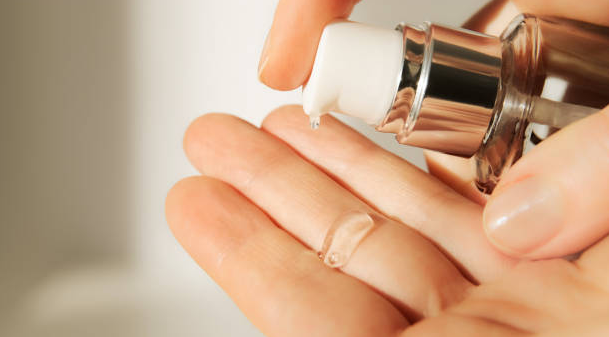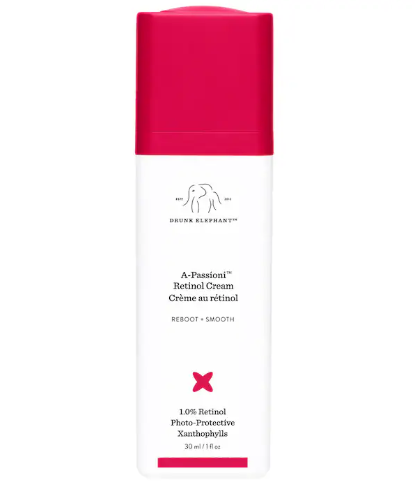Table Of Content
Tretinoin vs. Retinol: Which One Should You Choose?
You have a unique relationship with your skin. Learn the difference between prescription-strength tretinoin and over-the-counter retinol before applying anything to your face. What may work for another individual may not work for you.
Popular retinoid-containing skin care products penetrate the skin and help restore its youthful appearance by reducing age-related lines and wrinkles. These fast-acting, deeply penetrating Vitamin A derivatives aid in the restoration of natural elastin and collagen production that we lose as we age. Unlike topical exfoliants, which remove dead skin cells, retinoids work within the dermis, the skin's middle layer.
Tretinoin Vs. Retinol: Differences
Let’s see what is the difference between Retinol and Tretinoin:
Retinol acts as a training wheel for tretinoin and other retinoids with relevance to dermatology. They have comparable benefits and can be used on any skin type, although tretinoin is recommended more frequently for acne treatment and is FDA-approved for photo aging. Tretinoin is the stronger of the two, so it will produce results more quickly.
Drunk Elephant A-Passioni™ Retinol Cream
Retinol is a retinoid available over the counter that is more powerful and effective than retinal dehyde and retinyl palate. It is not as potent as prescription retinoids because it is available without a prescription, but it remains a popular and effective option for many patients. You should always follow the instructions on the product's label, but some retinol formulations require several weeks of daily use before observable skin changes.
Hers Anti-Aging Rx Cream
Tretinoin, on the other hand, is a synthetic form of vitamin A that will be prescribed by your dermatologist or physician. As with retinol, its primary function is to reduce age-related fine lines and wrinkles. Additionally, it can help treat sun damage and acne. The function of tretinoin is to speed up the life cycle of skin cells. Promoting the death of older skin cells permits the replacement of these cells with new ones. Tretinoin is an irritant, but this makes it more effective.
Benefits of Tretinoin And Retinol
Tretinoin and retinol both aid in diminishing the appearance of wrinkles, smoothing the skin, minimizing pores, and enhancing pigment distribution.
Tretinoin is an effective acne treatment. Dr. Lana Kashlan, a board-certified dermatologist, states, "If you have acne, you must use tretinoin without a doubt." Retinoids do not effectively treat acne. Consult your dermatologist for assistance in developing the most effective acne skincare routine.
Reduce Pore Size
When pores become clogged with dirt, oil, and dead skin cells, they become more visible. Tretinoin and retinol enhance the skin's ability to exfoliate by accelerating cell turnover, removing debris, and restoring normal pore size.
Your skincare and makeup products can clog your pores. Therefore, if you're prone to acne, look for comedogenic (pore-clogging) ingredients in your skincare products and replace what you can to prevent buildup from occurring.
Moreover, retinoids reduce the size of the oil gland, resulting in less oil production and accumulation, which is especially advantageous for oily skin.
Minimize Fine Lines And Wrinkles
Fine lines and wrinkles are a natural consequence of aging, but external factors such as sun damage can hasten their development. By increasing collagen production, tretinoin and retinol are excellent at preventing premature wrinkle formation.
Collagen is a protein that provides structure to the skin. Collagen production in the skin decreases by approximately 1% per year after the age of 20. Fine lines and wrinkles appear with time.
According to clinical studies, both retinol and tretinoin increase collagen in the skin. Throughout 10 to 12 months, daily tretinoin application increased skin collagen by up to 80%, according to one study.
Even out Skin Tone
Hyperpigmentation is caused by an increase in melanin production, resulting in an uneven or darker-than-normal skin tone. Uneven skin tone can be caused by sun exposure, hormonal changes, medications, skin injuries, disease, and aging. Retinol and tretinoin disperse melanin granules to even out skin pigmentation.
Improve Skin Texture
Remaining dead skin cells can cause dry, flaky patches on the skin. This layer of dead skin cells is eliminated thanks to the exfoliating properties of tretinoin and retinol, resulting in smoother skin.
Both tretinoin and retinol increase glycosaminoglycan (GAG) concentrations. Hyaluronic acid is a GAG with which you are likely familiar. GAGs play an essential role in maintaining skin hydration, firmness, and elasticity, resulting in a smoother appearance and texture.
Risks and Side Effects
Retinoids are not without side effects. In this instance, there is also some overlap between retinol and tretinoin. Possible risks include:
- Irritation: When applied for the first time or in higher concentrations, retinoid creams can irritate the application site. Apply retinoid cream around your eyes and mouth with caution.
- Hyperpigmentation: This is the term for dark patches on the skin. According to the American Academy of Dermatology, dark-skinned individuals are more likely to experience this retinoid reaction.
- Photosensitivity: Even if you only use retinoid creams at night, you should avoid sun exposure. According to a 2021 review, retinoids increase the risk of sunburn.
- Pregnancy dangers: Before using retinoid creams if you are pregnant or may become pregnant, you should consult your physician.
Despite having greater benefits than retinol, tretinoin has more severe side effects.
Which One Is Best Suited For You?
It depends on your individual needs and skin type.
Retinol is ideal for individuals who are just beginning to notice signs of aging and prefer a gentler product. It is also an excellent option for those who wish to delay the onset of additional signs of aging but are unwilling to risk adverse side effects.
Tretinoin is best suited for more advanced skin issues like deep wrinkles and age spots. Due to its fast-acting effects, it is also the treatment of choice for acne.
We always recommend using a moisturizer to combat dryness and irritation, no matter which one you choose. To maximize the effectiveness of your retinoid treatment, be sure to follow the instructions on the label.
Frequently Asked Questions (FAQs)
Tretinoin is up to 20 times more powerful than retinol. This is one reason why it can do more than retinol 3.
These are not the same in any way, shape, or form. Vitamin A is the source of retinol, which is produced by nature, while tretinoin is an artificial form.
People think that tretinoin works better and is stronger than retinol to treat skin problems like acne and wrinkles. It may cause more irritation, though, and you need a prescription to get it. Retinol is better for people with sensitive skin because it is less harsh and doesn't need a prescription.
Author








Top 10 Travеling Tips for Pеt Ownеrs
Best Body Washes For Dry Skin Under $50
8 Best Moisturizers for Mature Skin
How to Curl Your Hair to Make Your Style Last
Barbie Tattoo Ideas for the Doll-Loving Ink Enthusiasts
Selena Gomez and Hailey Bieber Drama Takеs thе Spotlight In Entеrtainmеnt Nеws
Michael Kors Shoes: The Perfect Addition to Your Shoe Collection
Lululemon Yoga Mats: Which One Is Best for You?